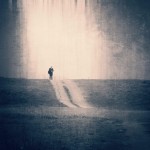 It’s been a bit over four years now since Scotland’s The Hare And The Moon announced the end of their activities. If it had remained really quiet afterwards about their founder Gray Malkin, one would probably remember them today like a slowly fading surreal dream and wonder if they ever really existed. The obscurity of the members, who never revealed their names and faces, but above all the equally intangible music, its mixture of film scores, dark ritualism and the eerie aspects of British folk traditions, all contributed to the mysterious aura of the group, which never appeared pretentious in all this. Also his friends recognized that Gray Malkin, who initially named an album and at some point also himself after this old term for a cat, still had a lot to say, and so, at the urging of others, his own project got rolling, which made a name for itself through collaborations (as with Trappist Afterland, Astoreth, Kitchen Cynics or just recenty Andy Sharp) and as part of new bands (Embertides, Meadowsilver, Widow’s Weeds, The Black Swan Triad). In his music, Malkins has always taken to heart Alan Trench’s once stated demand “to fuck up tradition” as a matter of course, anticipating much of what others would later propagate as Folk Horror or Hautology. That his own interests go far beyond all this is shown, among other things, by this selection of music; his numerous references would be material for an entire book. We talked about all of this and more in our new interview.
It’s been a bit over four years now since Scotland’s The Hare And The Moon announced the end of their activities. If it had remained really quiet afterwards about their founder Gray Malkin, one would probably remember them today like a slowly fading surreal dream and wonder if they ever really existed. The obscurity of the members, who never revealed their names and faces, but above all the equally intangible music, its mixture of film scores, dark ritualism and the eerie aspects of British folk traditions, all contributed to the mysterious aura of the group, which never appeared pretentious in all this. Also his friends recognized that Gray Malkin, who initially named an album and at some point also himself after this old term for a cat, still had a lot to say, and so, at the urging of others, his own project got rolling, which made a name for itself through collaborations (as with Trappist Afterland, Astoreth, Kitchen Cynics or just recenty Andy Sharp) and as part of new bands (Embertides, Meadowsilver, Widow’s Weeds, The Black Swan Triad). In his music, Malkins has always taken to heart Alan Trench’s once stated demand “to fuck up tradition” as a matter of course, anticipating much of what others would later propagate as Folk Horror or Hautology. That his own interests go far beyond all this is shown, among other things, by this selection of music; his numerous references would be material for an entire book. We talked about all of this and more in our new interview.
As you started your band The Hare And The Moon a bit more than a decade ago, you’ve been a passionate listener of music for quite some time, and as far as we know, your taste included metal, electronic music, folk and probably a lot more. Which impulses brought you to create the cinematic folk soundscapes you’re known for?
I think a mixture of personal musical preferences and a complete inability to properly play any of my instruments. Regarding the former, I think my years listening to artists such as Swans, Coil and Popol Vuh certainly directed me towards a more cinematic or filmic bent, or instilled a tendency to favour what might be described as mood pieces. I really prefer atmosphere, or to create an aural sense or feeling, rather than any notions of virtuosity or frilly, elaborate playing. It’s infinitely more interesting to me. The fact I can’t play guitar, mandolin, or keyboards properly, even after all these years, has meant that I have to think carefully about building and layering a track rather than being directly musical. Otherwise, and this not necessarily a bad thing, everything would probably sound like Judas Priest.
Would you say that at that time there was a certain (stylistic or atmospheric) gap to fill?
I wasn’t really concerned or influenced by filling any space or gap, more I just wanted to bring my influences together, whether it be film, music or literature; again I was also limited in what sounds I could make due to my very basic skills. The very first The Hare & The Moon album is almost recorded dry and in one channel straight to tape, I had no concept of effects or proper mixing, let alone mastering or any of that ‘professional’ type of business! That’s why it is curiously (I hope endearingly) wonky and most songs usually come to an end when my arms got too sore to carry on playing. There was no pursuit of being ‘folk horror’, a term which was not in the wide usage that it is today, although I was heavily influenced by things like The Wicker Man, 1960’s and 70’s acid folk and folklore; those are the elements that strongly directed and dictated how the music came together and sounded.
Scotland has been a real hotspot for innovative folk music during the past decades, and although there’ve always been international connections, the Scottish music traditions are quite under the radar here in continental Europe. To what extend did your local music traditions shape your own interests?
This pains me to say, but almost in something to rebel or act against. Scottish folk (not including Gaelic song or psalms) can be horribly twee and shortbread tin, and made within certain very tame conventions, so it can often be very conservative fare. Which is a wonder, given how many Scottish traditional ballads are about such subjects as the supernatural, murder and otherworldly affairs. It has also something of a muso tradition, of being virtuoso or technically adept at your instrument, which doesn’t interest me at all. There are exceptions, such as Alasdair Roberts or Burd Ellen, and of course The Incredible String Band, but it is mostly very middle of the road. A Scottish musician that influenced me much more is Michael Begg of Human Greed/Fovea Hex, whose soundscapes, experimental electronic pieces and chamber music speaks much more to me of the Scottish landscape than many contemporary folk bands.
Could you say to what extent the name under which you record owes something to “The Scottish Play“?
Not a great deal actually, although it is a fine play! I needed a name when venturing onto social media many years ago, so took my mantle from the title of The Hare & The Moon’s second album, not really thinking that I would come to use it as a nom de plume. I now try to avoid social media if at all possible, but many people now call me Grey and know me this way, so it has stuck. Witchcraft is also an interest of mine, so it befits this. A while back there was some confusion and someone thought I was actually called Graham Malkin, which caused some hilarity. I’ll generally answer to most things.
Until this day, your music has a certain collage aspect, which fits a lot to your approach as a studio musician instead of a live act. Both is nothing that most people might associate with folk inspired music. Were there musicians who inspired you to work in this way?
I think collage is a really good term, it describes well how I assemble pieces in the studio, trying to find the best fit and combination to work up or sustain a certain atmosphere. I think I probably drew a lot of inspiration from Nurse With Wound (despite my music not really sounding similar, except perhaps some of my work with So There or Michael Warren) and his Dadaist approach of constructing and mixing elements of sound to create a sort of sinister whimsy. Coil’s work, as well as the soundtrack work of Luboš Fišer (who recorded the theme music to ‘Valerie And Her Week of Wonders’), The BBC Radiophonic Workshop, The Art Bears, Tangerine Dream, Syd Barrett, Kate Bush, Einsturzende Neubauten – I’m sure they have all found their way in there, in the sense of pieces not needing to follow conventional routes and of having disparate elements and genres sitting side by side. Having different sounds or aspects that shouldn’t necessarily sit comfortably can give a pleasing unease or sense of discomfort. Being more studio based and playing a number or all of the instruments on some recordings, and then mixing and producing has been something that I have watched and admired in other artists like Foetus or Steven Stapleton. It can appeal to my inner control freak, just relying on myself and trying to get the sound in my head as near as possible to the sound on the tape. Although it often drives me half mad in the process.
You played with The Hare And The Moon for almost ten years until you finished this chapter a couple of years ago. Was there a musical or personal turning point that lead you to concentrate on your solo and other collaborations?
I was sick and tired of things by then, and in a very dark place with myself, which I very nearly did not come out of, or survive. Things needed swept away, both to even consider continuing in music (which I had no plans to do any more of) as well as to live or function as a person. That sounds very melodramatic, but it was true. Also, the idea of recording more ‘Wicker Man’ inspired folk music was becoming contrived and predictable, which was why I jumped at the chance to record the final The Hare & The Moon album with Sourdeline, a French acid folk who started out in the 1970s and whose albums I love. Our release together was entirely sung in French and it is undoubtedly one of my favourite albums that I have been involved in. Following this, as I mentioned, I had no enthusiasm or plans to ever record again, but an invitation by Peter from Ashtoreth led to recording the ‘Pilgrim’ album with him, which was a joy, as well the start of a valued friendship. Other new projects followed, with other friends, such as Kitchen Cynics and Trappist Afterland. Each feels tangibly different, and allows for unique ways of working and being creative, whether it’s more song based with Alan (Kitchen Cynics), Adam (Trappist Afterland), or Daughters of Grief (Widow’s Weeds) or more ambient or experimental with Peter (Ashtoreth), and David Colohan (Embertides).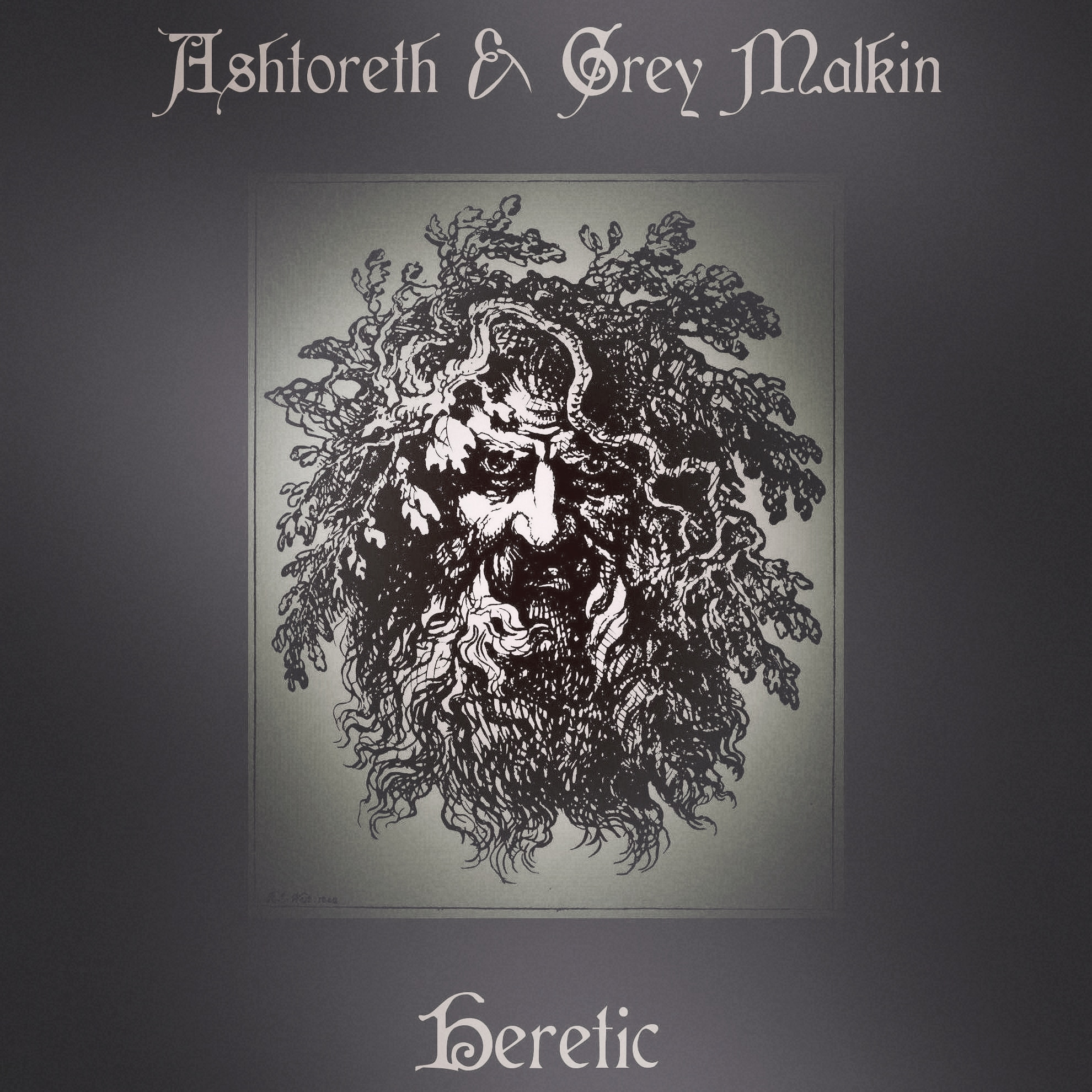
You recorded an album trilogy plus one remix album together with Belgian drone musician Ashroteth, and its subject matter is dedicated to the (mostly religious) types of the pilgrim, the hermit and the heretic. How did your interest in these topics come up?
Those are three of the albums I most enjoyed working on (there are two remix albums, one each for ‘Pilgrim’ and ‘Hermit’, the latter is on Bandcamp with all proceeds going to SARI, Stand Up To Racism And Inequality). To my mind (and Peter will have his own personal associations) these three archetypes describe distinct states of mind; solitude, or being alone within nature; introversion, and disturbance of mood and mind; and finally the external and collective, a connection with the universe and life itself.
Did you plan to let it become a trilogy from the beginning?
I think the trilogy idea came about during the recording of the second album; we had found a way of working that could be expanded and channelled into a project of this length and duration. We work incredibly well together, almost intuitively, and the pieces can come together quickly, or grow over time with the same enthusiasm. That we started with the idea of doing one song together, and that this grew into such an immersive and extended project is testament to what a creative and open minded person Peter is, I love everything that he releases and comes up with. We are on the same wavelength musically, and often do not need to explain or describe to each other what we are trying to do with a song; we reach the same place without words.
Would you say, that a musician or any type of creative person must be some kind of a pilgrim, a hermit and a heretic in some way to create something unique? If yes, which of the three models would you say is closest to you?
I wouldn’t want to speak for others, but I definitely veer towards the hermit. I am often happiest in my own company, or away walking alone in the woods or by the coastline. I find being around people both exhausting and draining, though it can also be inspirational and energising if I find a like-minded soul. In Edwardian times it was fashionable to employ a hermit to sit in the grounds of your stately home and you could confer with him on issues that were troubling you. If anyone has a comfortable cave or grotto and is looking for a scruffy recluse to fit the bill, do get in touch. I’ll take payment in red wine and crisps.
If “Pilgrim”, “Hermit” and “Heretic” were films, which directors (classical or contemporary) could you imagine to create it?
That’s a really interesting question. I would certainly nominate Werner Herzog, for his stark yet accepting depictions of the absurdities of humanity, and his respect for nature as an impassive, immutable force. I can’t think of any of his work that I don’t admire, whether it is his documentaries or his feature films; ‘Aguirre’, ‘Nosferatu’, The Enigma of Kasper Hauser’ and ‘Heart of Glass’ count amongst my all-time favourites. If I had the choice, I might get David Lynch to direct one of the three but keep Werner on to provide a voiceover. Can you imagine? Who else? Tarkovsky, although the films would undoubtedly go on for ever and ever.
Can you identify with Algernon Blackwood’s statement about the risks of the imagination, which can lead you to appalling places and requires a “judicious reign”? Is the feeling of diving too deep into imagination familiar to you?
The feeling of diving (or sinking) too deep is all too familiar. The mind is indeed a terrible thing to taste.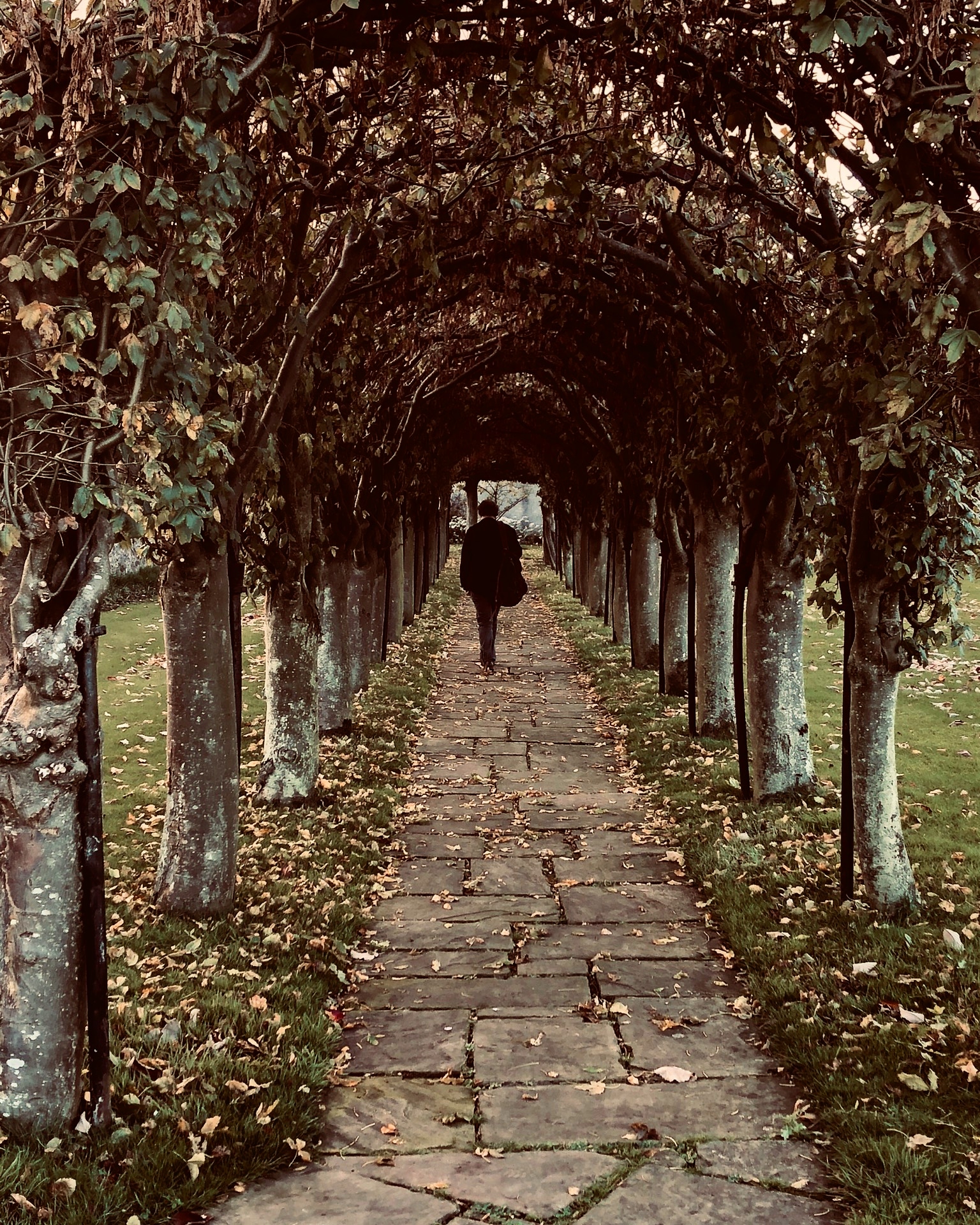
On “Heretic“ there are quotes by Blackwood and LeFanu, on “Revenant“ by Hodgson and Machen, on “Hermit“ by Robert Aickman. You’ve talked about your love of weird fiction. What can this kind of literature express? What are your favourite authors?
For myself, authors such as Aickman and Machen can represent a side of existence and life which offer something different to the everyday, the norm, which I strongly sense is there and is real. This other world is perhaps just out of our view, but sits alongside our earthly existence, watching us and waiting. These authors provide an opportunity to step into this other world, to stretch imagination and to believe and know that such things exist, should we wish to see them. As well as those mentioned I also enjoy the work of M.R James and H.R Wakefield, as well as more contemporary authors such as Alan Garner, but I am particularly drawn to Edwardian and Victorian ghost stories.
Is there one of Aickman’s “strange stories“ that you would like to set to (your) music?
There are a number of his tales that I would love to soundtrack, but especially ‘Ringing The Changes’ from ‘Dark Entries’; it is both deeply disturbing and unsettling in a manner that lasts long after the book is closed, as well as having some obvious elements that would lend themselves to a musical accompaniment. In the same vein, I would like to record some kind of background piece or mood setting music that could accompany the reading of writings by the likes of Machen or Blackwood; any of these classic and timeless wyrd or haunted stories. It’s something that I have begun working on and which I keep returning to, which will eventually see the light of day (or moon at night).
To what extent is the newly formed group The Black Swan Triad a continuation of the trilogy? Besides Verwimp, it also has contributions by Menalaeh and Vindlandsraud, two relatively obscure musicians, who worked with you on “Heretic”…
Both Menalaeh and Vindlandsraud work as the excellent Tiloh, and I met them via Peter whilst recording ‘Heretic’, for which Menalaeh provided some beautiful vocals. We got on very well and began The Black Swan Triad almost as an enjoyable experiment, which to both my pleasure, delight and surprise has quickly become a completed album. I would say that Black Swan Triad’s work is separate and different from the trilogy with Ashtoreth, and is a new project entirely, though there are motifs and moods that are definitely similar. I think for those that enjoyed ‘Hermit’ etc, they will certainly find something here that will appeal.
To my first impression, The Black Swan Triad is one of your most ecstatic ritualistic project so far. How would you describe the main feelings that are contained in the pieces of the forthcoming album?
There is a real range; we focused on representing the elements of nature, so fire, water, air, earth as well as some other more shadowy aspects of existence. The music was intended to describe those elements so, water for example is by turns tranquil then rapid and urgent, fire rages and earth has a certain power and balance, as well as being, well, earthy! I’m truly excited for people to hear what we’ve created, it feels like something very special.
On the The Floating World bandcamp site it says that “In 2014 Neddal Ayad (guitars), Grey Malkin (noise, drones), and Amanda Votta (vox, bari guitar) decided, with Amanda Votta & The Spectral Light, to make darker, noisier songs together than we had in The Floating World. This sometimes quiet, sometimes raging tsunami is the result.“ Was there a specific incident that made you focus on noisier music?
Ah, you would need at ask Amanda and Neddal this! They had gone in this direction when I began adding my parts. ‘Secrets to the Sea’ is a fine album, and one which I am very proud to have been part of. It is very different from The Floating World, Amanda’s project, which has a more serene and beautiful, mysterious melancholy to it. Although saying that, there is a new The Floating World album on the way, that I’ve been delighted to play on, and which is a veritable monster, some parts are pure, brutal and pleasing noise!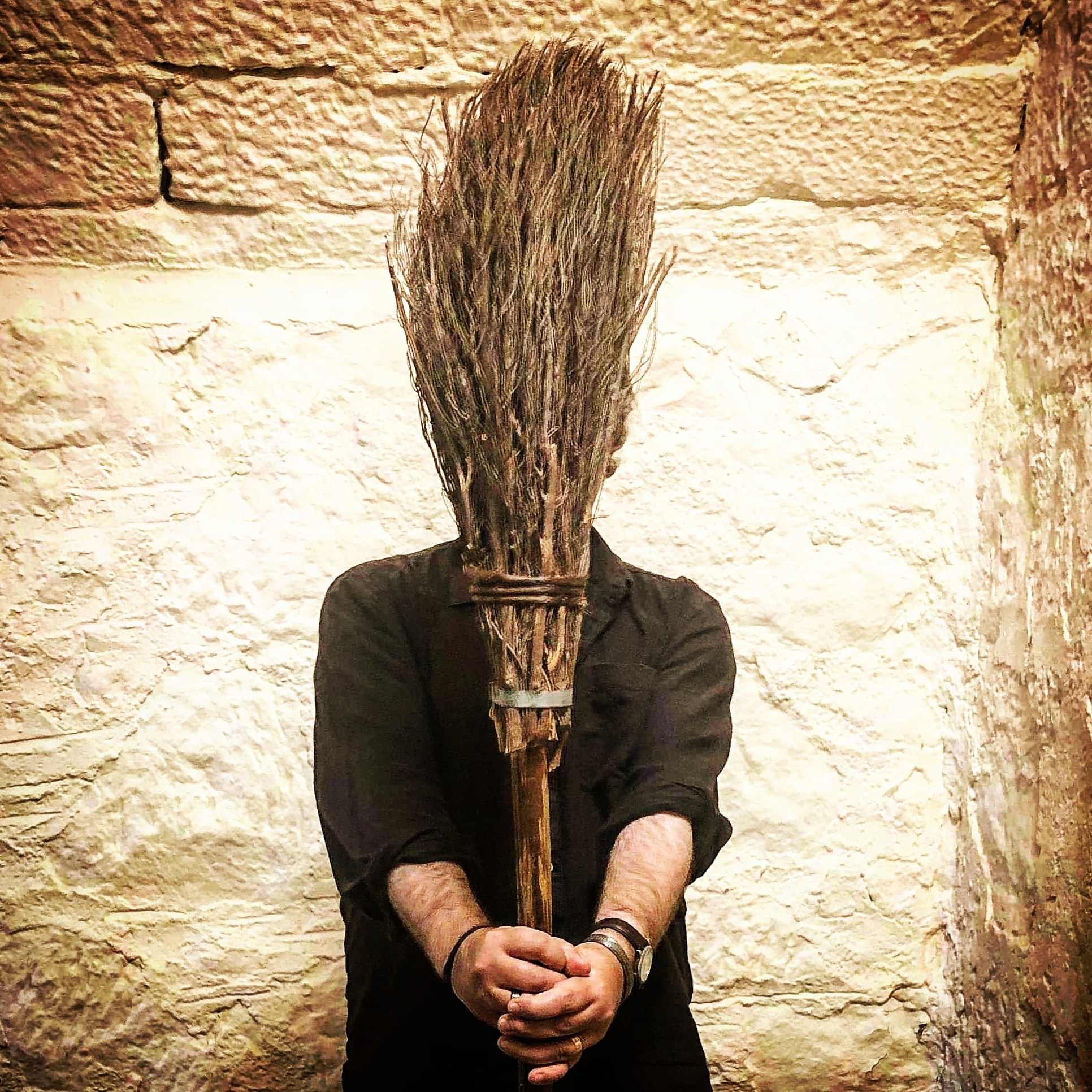
“Secrets To The Sea“ has just been released digitally. Are there any plans for a physical release? All proceeds from this release will be donated to the organization Butterfly (which helps Asian and migrant sex workers). You explicitly mention the horrific attacks in Georgia. I lived in Atlanta fo a couple of years and I passed one the parlours quite frequently. Do you feel that what happened there is an combination of appalling racism and an extremely unhealthy attitude towards sexuality (few seemed to have talked about that when the background of the shooter was scrutinized)?
Again, any release would be Amanda’s decision and choice, though we did discuss it, and physical editions are always nice. I know that Amanda was keen to have the album available again, hence it appearing on Bandcamp in aid of Butterfly. I do agree that a horrible combination of misogyny and racism were involved in the awful attacks in Georgia, which is sadly not an isolated occurrence in the world today. There has been a plethora of idiotic right wing, racist lowlife attitudes and behaviour that have been encouraged by certain leaders in the States and Europe/the UK, which I absolutely abhor. It’s a disgusting mindset which I do not understand, nor do I wish to.
You are also part of Meadowsilver, which has a more ethereal, medieval atmosphere. What can you tell us about that project?
I love being in Meadowsilver with Gayle and Stephen, both of whom I count as good friends. Our shared love of psychedelia and psych folk really lends itself to the music we make, and it also gave me a perfect opportunity to plug the guitar back in again and make some noise, having been a bit more keyboard focused for a while. We hope to record a follow up as soon as we are able too, I think something special happens when we record together. It’s a really enjoyable mixture of being able to document some of the folklore and traditions that I am hugely interested in, within a framework of off-kilter and dreamlike folk rock.
How important are collaborations for you in general?
Very, though I tend to record my parts in isolation and on my own, there is a genuine sense of teamwork and sharing of ideas in a way that creates something more than the sum of its parts. I am currently working with Andy Sharp from English Heretic on an EP, which has been a really interesting process, we are basing the songs on odd and unusual sites that Andy and I visited whilst he was up in Scotland. It’s a very creative and challenging way to work, working with others pushes me to do my best work in each case, in a way that working on my own wouldn’t offer. No slacking allowed.
How did the two collaborations with Adam Cole/Trappist Afterland came up? As you have both very strong individual visions, did you set up some sort of frame, before you started writing and recording the songs?
Actually no, we just jumped in! Some of the songs had a skeleton as provided by Adam, others by myself and we each added our parts accordingly. It was seamless and straight forward, I think because we are good friends and both have a very similar love of 60s/70s folk, so we are coming from the same reference points. I think our two styles compliment each other quite well, or at least I get to smother all his parts in mellotron, and I adore Adam’s voice. Hopefully, we will do more together in the future too. ‘The Trappist & The Hare’, in particular, seemed to resonant with people and it was nice bringing in David Colohan, Michael Warren, Gayle Brogan and Alan (Kitchen) Cynic to join us on the recordings. It feels like a family of sorts.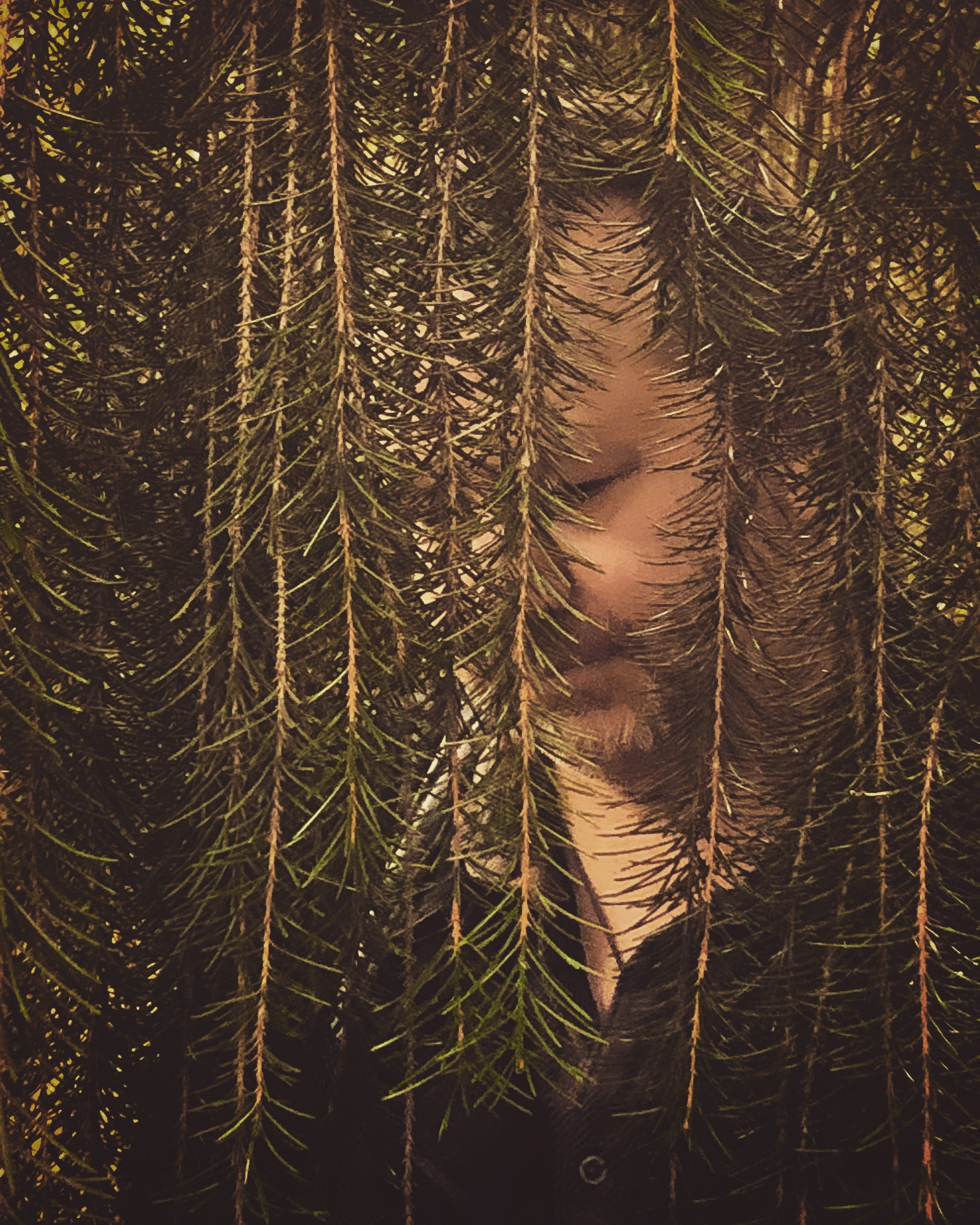
Without forcing you to (over)simplify your work(s), would you say that there is one element that connects all of the various projects you’ve been involved in?
I think there is a possibly a sense of unease or of something haunted in my music which filters in from my influences, such as the afore mentioned ghost stories, Czech New Wave cinema, surrealism, witchcraft and the darker of the traditional ballads. And to some extent, probably from how I am mentally too. All of this does permeate things, I hope in a non-contrived way. I’m not trying to construct ‘eerie’ music, I hope that it just results in this mood organically. I’m very wary of overly or deliberately contrived art which has a chosen genre or ‘label’ that it is aiming to be. It can then effectively be a tick box exercise, and consequently can feel disingenuous. Although, heavy metal might be the exception to this, if anything it can even benefit from this approach (Judas Priest again!). I think the recent Widow’s Weeds album ‘Revenant’, which I recorded with Daughters of Grief and which has wonderful artwork by Hidden Velvet, best exemplifies this one element and consolidates it. It’s a work that I’m extremely proud of and perhaps the one I would hold up as being representative of what I do.
I still vividly remember the very first time I watched “The Wicker Man“ on an old VHS tape at a friend’s flat in London many years ago. In the last couple of years the term “folk horror“ has been used frequently and sometimes – I feel – indiscriminately. The question is twofold: How would you yourself define it and do you feel that in a way some of your work may contain elements of it?
I’m a bit ambivalent about the term ‘folk horror’ although I’ve done a fair bit of writing in that area. I think it was originally a useful indicator of certain characteristics, be it in film, literature or music – something that describes a sense of something being slightly off, slightly not quite right – with the accompanying landscape or location either adding to or being a part of this disquiet. It now feels like a vast, thinly related ‘catch all’ of things that were never intended as folk horror, or even horror, all labelled under the same umbrella term, but that’s just me being grumpy. If it helps people seek out similar films or shows or whatever then it’s all good. I’m not keen on ‘genres’ or labels as a whole, eventually everything starts to follow a notion of how something ‘folk horror’ or ‘hauntological’ should be, and you end up with ‘Midsomer’ which I thought was just dreadful. I think there are some similar influences at play in my work, but I’ve never tried to make ‘folk horror’ music. I don’t sit and record wearing a goat mask and a cloak. Not all the time anyway.
(M.G. & U.S.)
Bandcamp | Soundcloud | Discogs | Instagram
